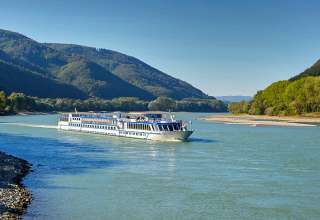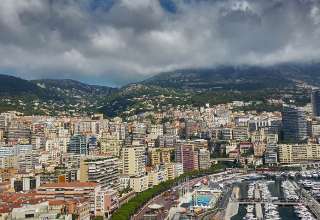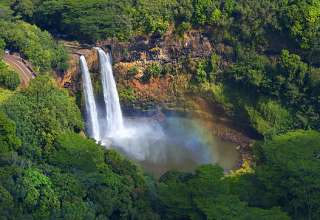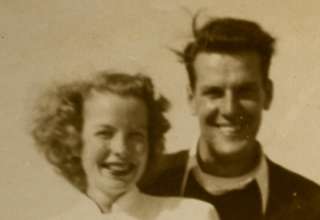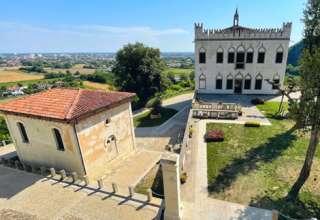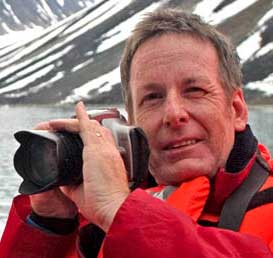Recently my 22-year-old nephew demanded in his own special way for me to name what was my favorite adventure destination. After a bit of hemming and hawing, I finally succumbed, but explained that everyone’s concept of favorite is subjective. Plus bad weather and even your emotional state at that given moment can play with your judgment. He in turn explained to me that I never refrained from saying the obvious. Sadly, the 650-passenger vessel, MV Discovery is now on hiatus, but the cruise still colors my thoughts today. So, here you go, kid; below is my story of my favorite travel adventure; and that destination is Antarctica.
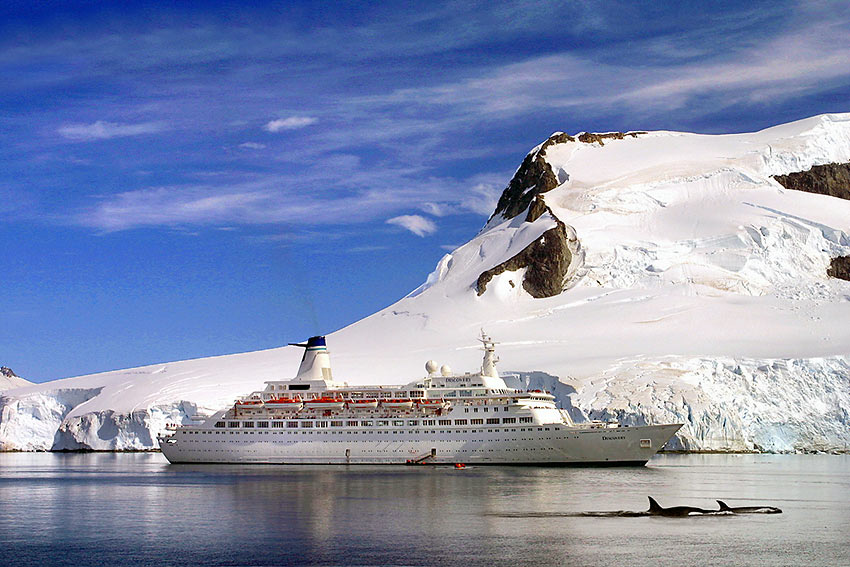
Once upon a time, the joke among those in the cruise industry was that the cruise vacation was something for the “newly wed or the nearly dead.” I remember those jokes, as well as a time in my own life when I would be embarrassed to say that I was even going on a cruise. One day it occurred to me, how else could I see seven Caribbean island nations in eight days or explore a series of major Alaskan cities that are inaccessible by road in under a week? I quickly became a champion of the cruise experience. (Sure there was also the pampering, the shows and the endless buffets, but who was I to complain?) Today the cruise industry has exploded to such an extent that there are now options available for everyone from family-friendly and budget cruises to excursions that focus on ecology, wildlife, and expeditions to places on the planet long considered inaccessible. Today there are even climate change cruises where you will see the devastating effects of global warming right before your eyes.
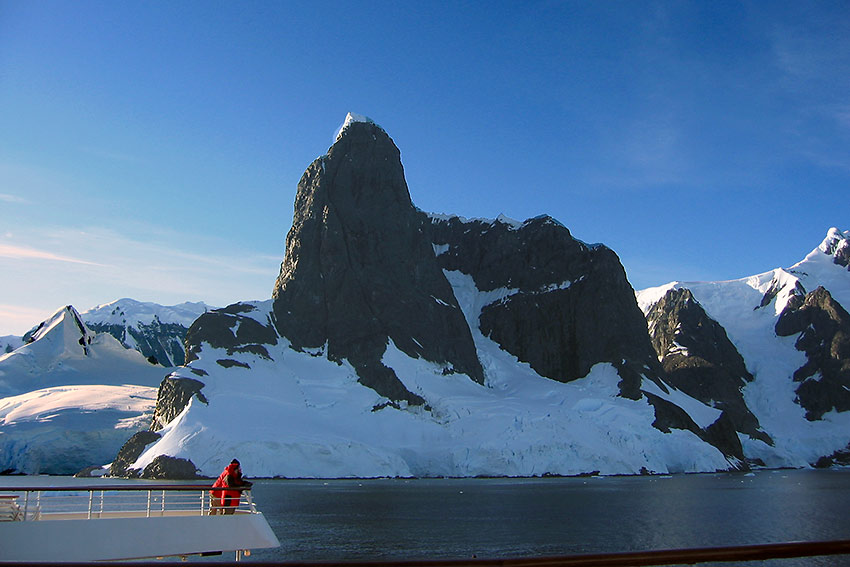
Back Story
It was not confirmed until the early 1800s that there was even the existence of a “southern land,” when British, American, Norwegian and Russian expeditions began exploring the Antarctic Peninsula region. In 1840 it was established that Antarctica was a continent-the fifth largest continent in the world – and not just a group of islands. Whalers and fur seal hunters braved the rough seas and brutal terrain for treasure. Following World War II there was an upsurge in scientific research on the continent, with a number of countries setting up year-round research stations. Seven made territorial claims, and the Antarctic Treaty was negotiated in 1961, honoring existing territorial claims and giving the nations the right to explore the continent for scientific reasons. The first cruise ship exclusively for the sake of tourism sailed to Antarctica in the summer of 1950, the only season in which the weather makes it possible. By 1970, as the cruise industry began to grow, so did tourism to Antarctica, and by 2005, 36 different vessels made it to the continent in one year. For many it is a journey into history; for others an unparalleled ecological and sea life experience; but for most, it is the trip of a lifetime.
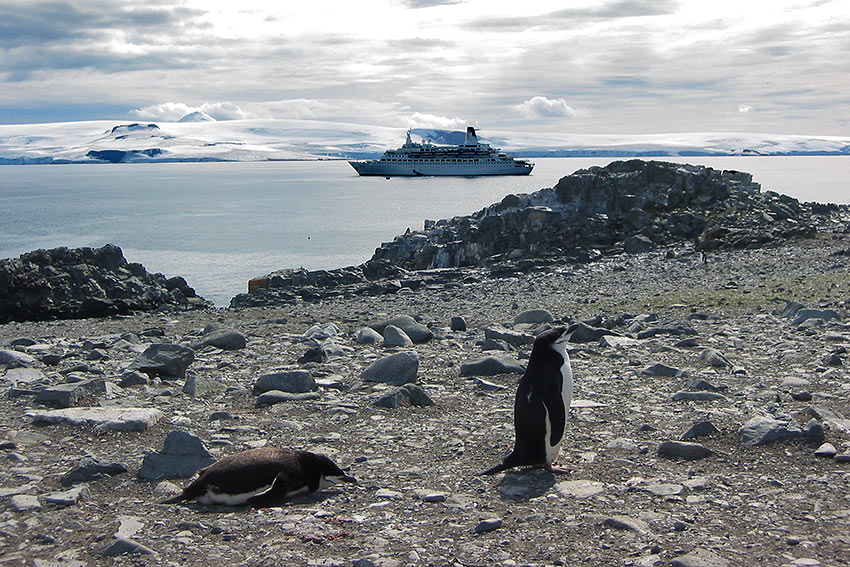
After setting foot aboard the deck of the MV Discovery, I began asking guests why they chose to take an eight-day cruise to Antarctica – the coldest, windiest and driest continent in the world; a landscape which is 98 percent thick continental ice sheet and 2 percent barren rock; a continent so cruel and unforgiving that virtually no life can survive on it. The overwhelming answer from my fellow cruisers was simple: “Because now I can.” It was a good answer. The more I thought about it, I realized it was mine too.
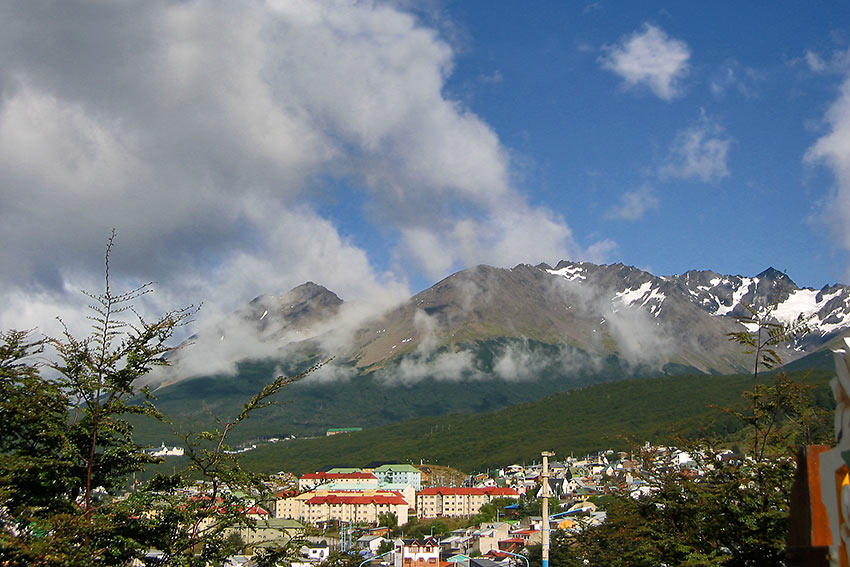
The MV Discovery Experience
My journey began at Ushuaia, Argentina. Billed as the southernmost city in the world, the now upscale ski resort sits on the bottom tip of nation, where a dramatic mountain landscape falls directly into the sea. Once the home of a penal colony – now a museum and definitely worth visiting – this is where embarkation began on the MV Discovery. The Discovery package, though, wisely allowed guests to spend 24 hours in this remote part of the world for tours of the city and Tierra Del Fuego National Park. There was also plenty of time to sample local dishes that included Patagonian lamb and king crab.
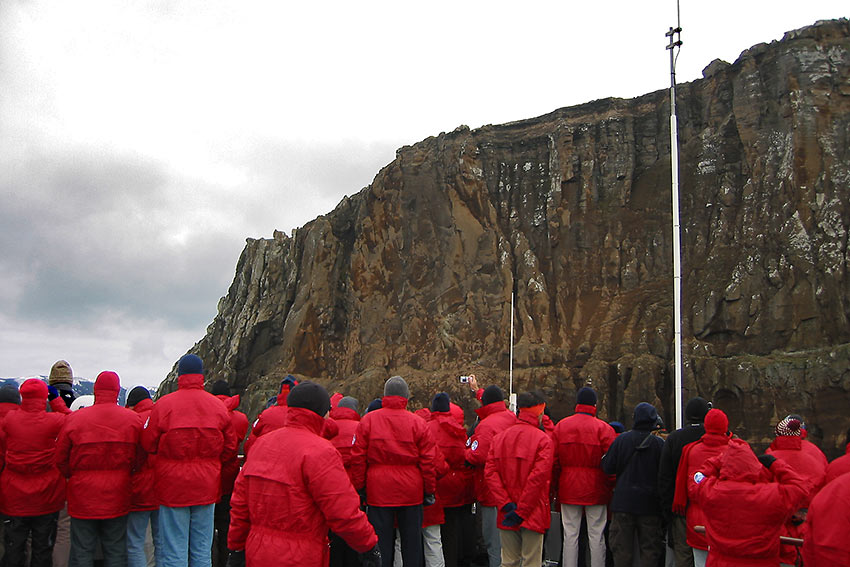
The MV Discovery is a handsome vessel with a deep hull, making it possible to negotiate Antarctica’s rough seas and massive icebergs. I was pleased to find a complimentary expedition parka waiting for me in my cabin, something that became an essential part of my wardrobe to deal with the brisk weather conditions.

The MV Discovery’s Expedition Team
One of the pluses of the voyage was that a team of working polar explorers conducted lecture programs on board. The team was easily accessible to answer questions regarding everything from polar glaciers and other ice formations to how sea life can survive in such an extreme environment. The team also educated guests on the sensitive nature of preserving this pristine continent from human harm.
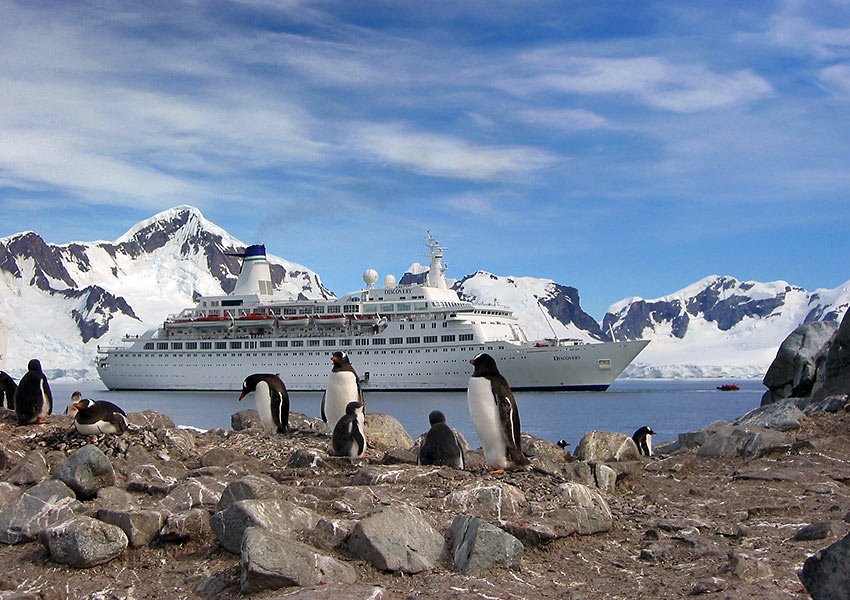
Crossing the Drake
“Below 40 degrees, there is no law. Below 50 degrees, there is no God,” was the sailors’ creed about crossing the infamous Drake Passage – a merciless 400-mile wide passage between the southern tip of South America and Antarctica. Situated at the latitude of the ‘Furious Fifties’ winds, between Cape Horn and the South Shetland Islands, it is the shortest route to Antarctica. Named after Sir Francis Drake (who never passed through the route) it is considered to have the worst sea weather in the world. If you’ve ever contemplated taking seasickness medication, this would be a good time to start. Those on the vessel who opted not to, spent most of the next 15 hours confined to their beds. One could not help but marvel how men in little wooden sailboats could cross this treacherous passage almost 390 years ago.
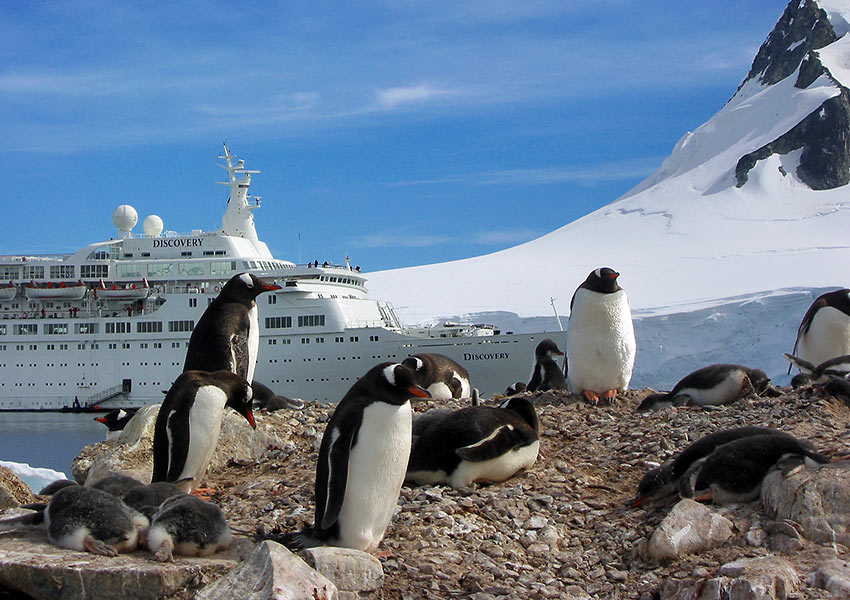
Landings
The Discovery team led excursions on zodiac pontoon motorboats for landings on the Antarctic Peninsula and her islands. For many on the voyage, setting foot on the continent was the supreme goal. The weather, though, plays the defining factor and flexibility is a key word on any voyage. If a certain passage is clogged by icebergs, the ship’s captain, ice master and expedition team leader will huddle and design another route. When one of our landings was cancelled due to fierce winds, we explored an iceberg alley that featured mile-long icebergs floating past the vessel. Fortunately, due to overall favorable weather conditions, we were able to make two landings, one on Paradise Harbour, considered the Riviera of Antarctica, and the other on the crescent shaped Half Moon Island. Both locations offer stunning photo opportunities and close-up encounters with thousands of gentoo and chinstrap penguins. It’s austral summer and the black sand seems almost warm on your feet. Parent penguins are feeding their chicks. The scope and vastness of the surroundings are unimaginable.
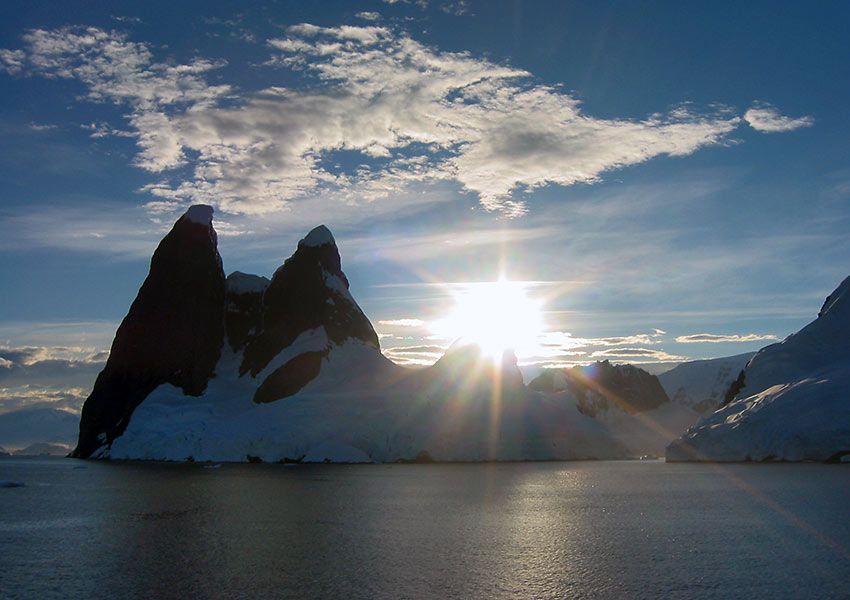
Antarctica – A Look Back
Since my return I am frequently asked what was it like to journey to this spectacular, but almost hidden continent. No words adequately describe the experience. Quite simply, it is the most beautiful place I’ve ever seen. There were some days when I stood on the deck of the vessel and quite literally felt like I was on another planet. My advice: plan your trip now. The season is short and the demand is great.

